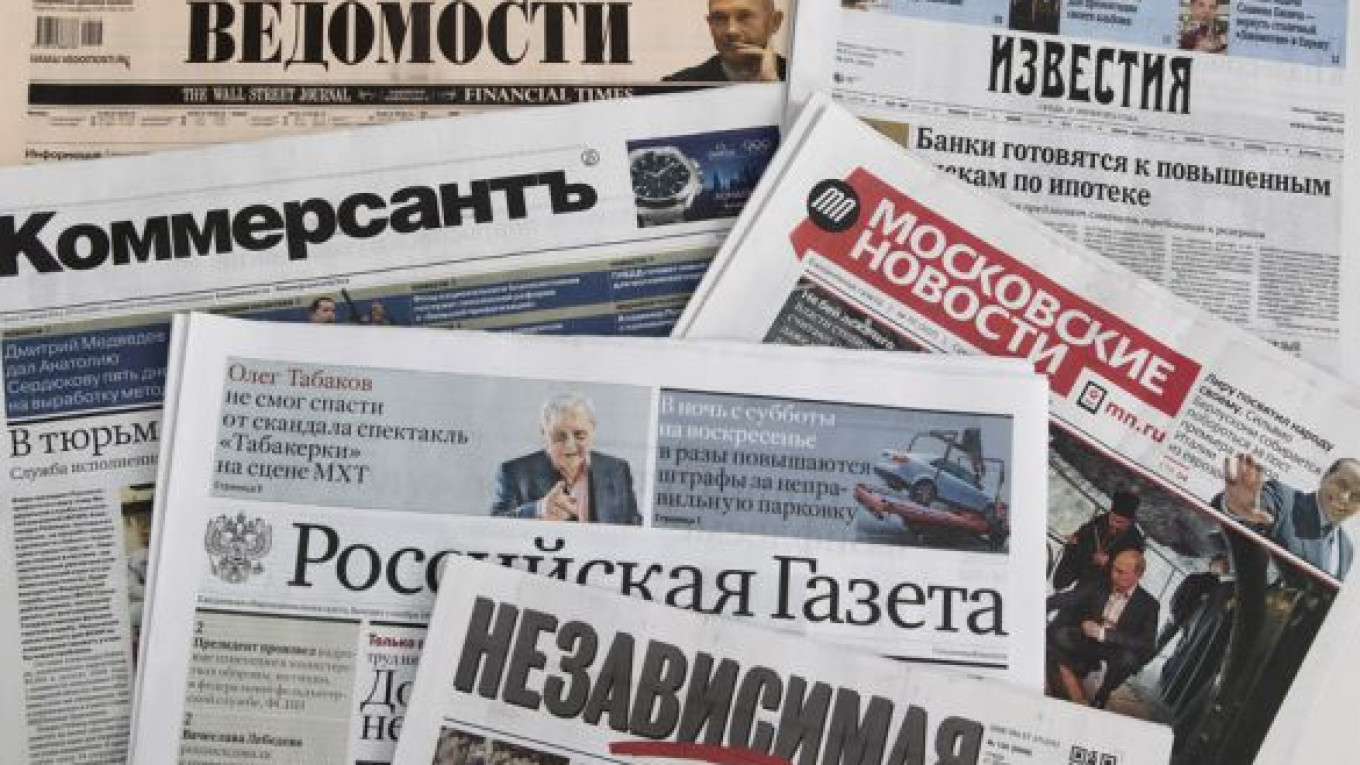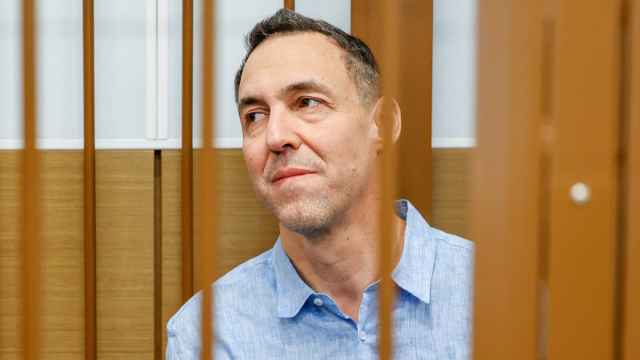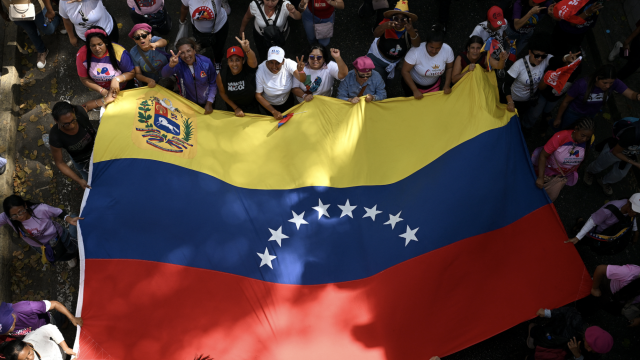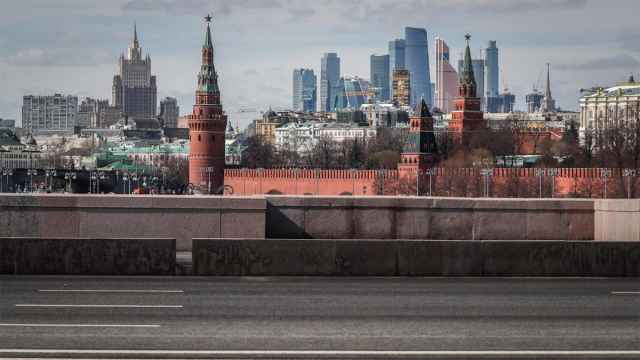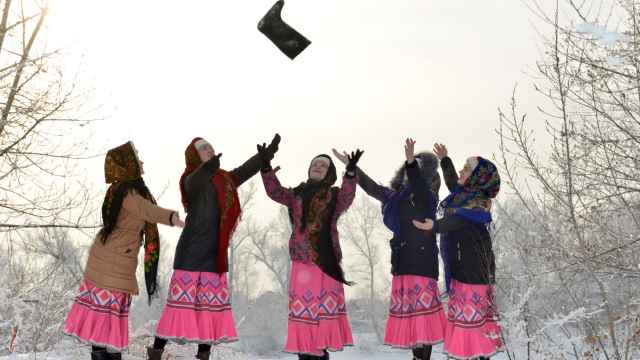Kommersant
1. Irina Nagornykh et al. article headlined "Leadership in fleet way" says that the chairman of Crimea's Council of Ministers, Sergei Aksenov, and former deputy commander of the Black Sea Fleet, Sergei Menyaylo, have been appointed as acting governor of Crimea and acting governor of Sevastopol, respectively. In addition, the elections to these regions' parliaments have been rescheduled from 2015 to this autumn; pp 1, 2 (970 words).
2. Yelena Kovaleva and Olga Shestopal article headlined "Explosive micro-element" says that the setting-up of a national payment system in Russia, independent from international players, may face technical difficulties because the software used is owned by MasterCard; pp 1, 10 (633 words).
3. Yury Yarotsky interview with Culture Minister Vladimir Medinsky, headlined "'This is not criminal code of culture,'" speaking about a new state culture policy; pp 1, 6 (2,579 words).
4. Ksenia Dementyeva et al. article headlined "Rossia enters Crimea" says that Russian banks have begun to operate in Crimea. Bank Rossia turned to be the first serious player in the Crimean banking sector; pp 1, 10 (812 words).
5. Natalya Gorodetskaya article headlined "Finance Ministry suggests saving on city managers" says it is highly probable that today the State Duma will approve the first reading of a local government reform that would abolish direct mayoral elections in the large cities divided into districts; p 2 (544 words).
6. Ivan Safronov article headlined "Rosoboronexport armed with new people" says that deputy director general of Russian state arms export agency Rosoboronexport Viktor Komardin has resigned, but has been offered the post of adviser. Sergei Goreslavsky, the head of the foreign cooperation department at the Rostec state corporation, has replaced Komardin at the post; p 2 (566 words).
7. Oleg Rubnikovich article headlined "Police looking for border developer" says that the former head of the Federal Agency for State Border Control and Maintenance, or Rosgranitsa, Dmitry Bezdelov, has been out on a federal wanted list on suspicion of embezzling almost 1 billion rubles (almost $27.8 million) allocated to build a border-crossing point on the border with Abkhazia, a territory disputed between Russia and Georgia; p 4 (477 words).
8. Grigory Tumanov article headlined "Bolotnaya square almost passed" says that Moscow's Zamoskvoretsky District Court has begun to hear the second "Bolotnaya case" of the May 6 2012 unrest in Moscow's Bolotnaya Ploshchad. The defendants in the case are charged with participating in riots and resisting the police; p 4 (539 words).
9. Dmitry Marakulin article headlined "Deal taking shape in Galina Starovoytova's murder case" says that former member of the State Duma from the Liberal Democratic Party of Russia, businessman Mikhail Glushchenko, charged with masterminding the killing of lawmaker Galina Starovoytova in 1998, has asked investigators for a pre-trial deal; p 4 (552 words).
10. Alexei Sokovnin article headlined "Debt to motherland recalled to Platon Lebedev" says that former Menatep bank head Platon Lebedev has been banned from leaving Russia over an alleged tax debt; p 4 (497 words).
11. St. Petersburg-based Anna Pushkarskaya article headlined "Special opinion on 'foreign agents'" says that the Constitutional Court has published a dissenting opinion of judge Vladimir Yaroslavtsev, who disagreed with the April 8 court ruling that recognized as constitutional the law requiring NGOs to register as foreign agents if they are financed from abroad; p 7 (509 words).
12. Yelena Chernenko article headlined "West's lists to become eastern" says that the U.S. and the EU are planning to toughen their sanctions against Russia, whom they blame for the ongoing mass riots in Ukraine's southeast. In addition to economic sanctions, they are expected to extend a blacklist of Russian officials banned from entering Europe and having active assets there; p 8 (705 words).
13. Sergei Strokan and Yanina Sokolovskaya article headlined "Donbass asked to surrender to referendum" says that pro-Russian protesters in Ukraine's Donetsk region are totally controlling the situation there. They have forced the new authorities in Kiev to make concessions on a possible federalization referendum; p 8 (762 words).
Nezavisimaya Gazeta
1. Anastasia Bashkatova article headlined "Tatyana Golikova suggests correcting ministries' powers" says that Audit Chamber head Tatyana Golikova has suggested authorizing a single ministry to supervise the execution of the president's decrees issued in May 2012. She expects the Economic Development Ministry to be entrusted with this task; pp 1, 4 (876 words).
2. Alexandra Samarina article headlined "Migrants rush into Russian army" says that according to the head of the Migrants' Federation of Russia, Mukhammad Amin, migrants want the Russian authorities to give them an opportunity to serve in the Russian army. The migrants' goal is said to be helping Russia in its standoff with the West over the Ukrainian crisis. However, experts are skeptical about the idea; pp 1, 3 (948 words).
3. Tatyana Ivzhenko article headlined "Compromise between Kiev and rebellious regions possible" says that this week the Ukrainian parliament may take a decision to hold a referendum on Ukraine's federalization and the status of Russian and Ukrainian languages on May 25 together with the presidential election. However, Kiev has not given up a counterterrorism operation in the country's southeast and is ready to use the army there; pp 1, 6 (1,337 words).
4. Yury Paniyev article headlined "Moscow under fire of EU criticism" says that the international community is concerned about the ongoing riots in Ukraine's southeast, blames Russia for the situation there and is considering a third package of anti-Russian sanctions; pp 1, 7 (800 words).
5. Editorial headlined "Endless federalization" looks at the prospects of a federalization reform in Ukraine. The federalization will trigger "chaotic and uncontrolled break-up of the country into autonomous areas" and in this situation, Russia will not be able to defend the Russian-speaking population except for the "intervention and annexation of new territories", the article says; p 2 (496 words).
6. Ivan Rodin article headlined "Single day of rare voting" focuses on a local government reform that would abolish direct mayoral elections in the large cities divided into districts. The reform is being discussed in the State Duma; p 3 (803 words).
7. Oleg Shvedkov article published in the regular Carte Blanche column headlined "To defend colonel Mel is Russian state's duty" details the scandal over the detention of Russian national Yury Mel in Lithuania on suspicion of participating in the events near Vilnius television tower in January 1991 and says that Russia is lacking a reliable mechanism of ensuring the security of Russians abroad; p 3 (580 words).
8. Oleg Matveychev article headlined "Reset for people's benefit" comments on a local government reform that would abolish direct mayoral elections in the large cities divided into districts; p 5 (1,838 words).
9. Anton Khodasevich article headlined "Minsk demands concessions from Moscow" previews the Belarusian prime minister's visit to Moscow, which begins today. The cancellation of export duties on oil products is the main issue on the agenda of his visit; p 6 (662 words).
10. Yevgenya Novikova article headlined "Libya left without authorities once again" says that Libyan Interim Prime Minister Abdallah al-Thinni has resigned, having admitted that he is unable to cope with the political crisis in the country; p 7 (637 words).
11. Vladimir Skosyrev article headlined "Beijing and Moscow discuss Kiev" previews Foreign Minister Sergei Lavrov's visit to China, which begins today. Preparation for the Russian president's visit to China and the situation in Ukraine will be discussed during his visit; p 7 (514 words).
Vedomosti
1. Tatyana Voronova article headlined "Central Bank to buy payment system" says that the Central Bank will be responsible for the setting-up of a national payment system in Russia. For this purpose, it will buy the Pro100 payment system from Sberbank; pp 1, 14 (300 words).
2. Andrei Sinitsyn opinion headlined "Ambush regiment" says that Russians are happy about the merger between Crimea and Russia and are comfortable with the Kremlin denying the military involvement in the peninsula; pp 1, 6 (400 words).
3. Alexei Nikolsky and Polina Khimshiashvili article headlined "Categorical referendum" says that having failed to stabilize the situation in the country's southeast, the Ukrainian authorities have agreed to hold a referendum on Ukraine's system of governance. The article also features a Russian expert's comment on the issue; p 2 (500 words).
4. Anastasia Kornya article headlined "Dissenting doubt" says that Constitutional Court judge Vladimir Yaroslavtsev believes that the law requiring foreign-funded NGOs to register as foreign agents is unconstitutional; p 2 (200 words).
5. Svetlana Bocharova article headlined "Expensive Vladimir Vladimirovich [Putin]" says that the salaries of the Russian president and the prime minister will almost triple; p 2 (300 words).
6. Sergei Titov article headlined "Crimea is not place for business" says that the Ukrainian parliament will pass today a bill on occupied territories to restrict business activities in Crimea. The article features Russian experts' comments on the issue; p 3 (400 words).
7. Lilia Biryukova article headlined "Dismissal from ombudsman" says that Russian businessmen's rights ombudsman Boris Titov will present his first annual report on the problems facing Russian businesses and measures to combat corruption; p 4 (400 words).
8. Pavel Aptekar opinion headlined "Brothers in arms" comments on an idea to permit migrants to serve in the Russian army; p 6 (200 words).
9. Alexei Levinson article headlined "Foreboding of cold war" looks at Russian people's views of the Russia-West standoff over the Ukraine crisis; p 7 (400 words).
Izvestia
1. Anastasia Alexeyevskikh and Alexandra Bayazitova article headlined "Universal electronic card risks getting under sanctions" says that the universal electronic card, on the basis of which they plan to develop the national payment system, is vulnerable to MasterCard because it uses its software; pp 1, 3 (900 words).
2. Svetlana Povoraznyuk and Taras Podrez article headlined "Special devices to protect state websites from DDoS attacks " says that a national system against cyber-attacks will be established in Russia; pp 1, 4 (600 words).
3. Alexandra Bayazitova article headlined "VTB comes to U.S. taxmen" says that the Russian VTB Group is joining the Foreign Account Tax Compliance Act directly through the U.S. tax authorities; pp 1, 3 (300 words).
4. German author Bernd Ulrich article headlined "How Putin separates us" describes how Germany is treating the Ukraine crisis and the situation with Crimea; pp 1, 5 (1,700 words).
5. Alena Sivkova article headlined "They suggest fines for concealing second passport" says that the Russian government is drafting amendments to the law on citizenship. The amendments would oblige Russians to notify the authorities when getting a foreign citizenship; pp 1, 3 (500 words).
Rossiiskaya Gazeta
1. Sergei Maslenikov article headlined "Slavic post" reports on the state of affairs in Ukraine's town of Slovyansk; p 1 (669 words).
2. Political analyst Leonid Radzikhovsky article headlined "Spring aggravation" comments on the Ukrainian crisis and looks at the problems that Russia may face if Ukraine's southeast separates; p 3 (809 words).
3. Maxim Makarychev article headlined "Journalist and policeman himself" looks at Ukrainian Interior Minister Arsen Avakov; p 9 (496 words).
4. Yury Gavrilov interview with Federation Council Deputy Chairman Yury Vorobyev, headlined "To become soldier by-passing barracks", speaking about a bill to regulate the teaching of military science; p 12 (1,610 words).
5. Yury Gavrilov article headlined "Migrants long for going into service" outlines an idea to permit migrants to serve in the Russian army and looks at how it can be implemented; p 12 (505 words).
Moskovsky Komsomolets
1. Igor Karmazin article headlined "Enforcement to referendum" asks Ukrainian and Russian experts two questions about the situation in Ukraine's southeast and quotes their answers; pp 1, 2 (753 words).
2. Yulia Kalinina article headlined "Janitors mature to war with West" speaks ironically of an idea to permit migrants to serve in the Russian army; pp 1, 3 (553 words).
3. Mikhail Rostovsky article headlined "Ukraine vs. Ukraine" says that the only way to reconcile Ukraine's western and eastern regions is decentralizing the country, not holding the talks involving external players; pp 1, 2 (682 words).
4. Leonid Berres article headlined "Water cut off from Crimea" says that Ukraine has considerably reduced water deliveries to Crimea; p 2 (522 words).
5. Olga Bozhyeva article headlined "Paris not to see Russian tanks and helicopters" says that Russia may be banned from participating in the Eurosatory 2014 arms exhibition, to be held in Paris on June 14-20, and features Russian state arms export agency Rosoboronexport official spokesman Vyacheslav Davidenko's comment on the issue; p 2 (528 words).
6. Marina Perevozkina interview with Alexander Zakharchenko, the head of the Donetsk region branch of the Kharkiv-based pro-Russian organization Oplot, headlined "'If Donbass rises, there will be little room for everybody'", speaking about the organization and its activities; p 2 (939 words).
7. Natalya Rozhkova article headlined "Senators show purses" looks at the 2013 income declarations submitted by the Federation Council senators; p 3 (618 words).
RBK Daily
1. Mikhail Rubin report "Khodorkovsky will lead to Kiev" says that former Yukos head Mikhail Khodorkovsky is organizing in Kiev the forum Ukraine-Russia: Dialogue. The Russian public figures, who disagree with Putin's policy towards Ukraine, are invited to participate in it. People close to the Kremlin believe that in doing so, Khodorkovsky is taking part in the information war against Russia; pp 1-2 (700 words).
2. Svetlana Reyter report "Fate of referendum" says that the Ukrainian authorities have for the first time begun to speak about a possibility to hold an all-Ukrainian referendum to define the state structure of the country; p 3 (350 words).
3. Georgy Makarenko report "Ukraine in front of three roads" says that according to the World Economic Forum, Ukraine's long-term social and economic prospects practically do not depend on geopolitical problems the country is facing. The fate of Ukraine is in the hands of local politicians who should choose the right development model; p 3 (750 words).
4. Roman Badanin interview headlined "'We do not classify anything ourselves"' with Audit Chamber head Tatyana Golikova; p 4 (2,600 words).
Noviye Izvestia
1. Dmitry Durnev article headlined "Donetsk puzzle" says that riots continue in Ukraine's Donetsk region despite an ultimatum to lay down arms and vacate the seized regional government buildings, presented to pro-Russian activists by the Ukrainian authorities; pp 1-2 (492 words).
2. Yana Stadilnaya report "Without resources and opportunities" says that the Kiev authorities have not yet finally decided what to do with protests in the southeast of the country; p 2 (600 words).
3. Yekaterina Dyatlovskaya report "Case of four" looks at the trial in the case of disturbances on Moscow's Bolotnaya Ploshchad on May 6 2012; p 2 (700 words).
4. Sergei Yezhov report "For our own people only" looks at the rally "Citizenship is for our own people only" organized by several opposition parties in St. Petersburg against granting on a large scale Russian citizenship to natives of the Soviet Union; p 2 (450 words).
5. Sergei Putilov article headlined "'Adjusting'" says that President Vladimir Putin has signed a decree increasing his salary and that of Prime Minister Dmitry Medvedev and features experts' comments on the issue; p 3 (635 words).
Komsomolskaya Pravda
1. Dmitry Smirnov brief report "Donbass asks Putin for assistance" says that according to presidential press secretary Dmitry Peskov, Putin knows about appeals from eastern Ukraine asking for help; p 2 (100 words).
2. Yelena Krivyakina report "Despite sanctions" says that State Duma speaker Sergei Naryshkin has brought a delegation of Russian lawmakers to Paris to take part in the events under the aegis of the UNESCO to mark the 60th anniversary of the Soviet Union's joining this organization; p 3 (450 words).
3. Nigina Beroyeva report "Kiev encounters other Ukraine" says that Kiev's special operation to "mop up" the east of the country has confronted barricades; p 4 (900 words).
4. Alexander Kots report "Ukrainian military: We would go to mop up our capital first" says that the newspaper's correspondents have tried to find the signs of a large-scale operation carried out by the Ukrainian authorities in the southeast of the country; p 5 (1,000 words).
5. Sergei Semushkin report "Ukrainian President Viktor Yanukovych: Yatsenyuk's clique deliberately splits our society" looks at ousted Ukrainian president Viktor Yanukovych's news conference in Rostov-on-Don; p 6 (600 words).
6. Article by Boris Kagarlitsky, director of the Institute of Globalization and Social Movements, headlined "They prepared for partisan war in the west and it broke out in the east" says that a partisan war is being waged in Ukraine; p 6 (500 words).
7. Alexei Pankin report "Does Turchynov ask UN to bomb Donbass a little?" looks at acting Ukrainian President Oleksandr Turchynov's recent initiatives to settle the crisis in the country; p 7 (350 words).
8. Maxim Brusnev report "CIA manages Kiev's junta" says that a special operation in the southeast of Ukraine has begun "at the instigation of the head of the U.S. intelligence service"; p 7 (250 words).
9. Mikhail Bocharov brief report "America dreams of leaving us without technologies, medicines and equipment" says that the U.S. is preparing "hidden" sanctions against Russia; p 7 (150 words).
10. Alexander Grishin interview with Deputy Prime Minister Dmitry Rogozin who looks at Russia's defense industry; pp 1, 10-11 (2,300 words).
Trud
1. Vitaly Golovachev article headlined "Who and how 'lands' Sergei Krikalev" comments on the dismissal of Russian cosmonaut Sergei Krikalev as the head of the Cosmonauts Training Centre and briefly interviews Krikalev on the issue; pp 1, 4 (1,461 words).
2. Anatoly Zhurin article headlined "Route to nowhere" looks at prospects for the joint Russian-Ukrainian project to develop the military transport aircraft An-70 given the Ukraine crisis; pp 1-2 (1,000 words).
3. Sergei Frolov article "Slovyansk and then everywhere" says that a "creeping revolution" has seized Ukraine's southeast; p 2 (1,000 words).
Tvoi Den
1. Anton Stepanov report "We fight up to the last ditch!" says that residents of Ukraine's southeast have sworn to defend barricades "until the last cartridge"; pp 1-3 (400 words).
2. Andrei Muravyev brief report "It is possible to avoid massacre" says that Russia's ambassador at the UN, Vitaly Churkin, has called on the West to "restrain" pro-Maidan people in Ukraine; p 3 (150 words).
April. 15, 2014 / BBC Monitoring / ©BBC
A Message from The Moscow Times:
Dear readers,
We are facing unprecedented challenges. Russia's Prosecutor General's Office has designated The Moscow Times as an "undesirable" organization, criminalizing our work and putting our staff at risk of prosecution. This follows our earlier unjust labeling as a "foreign agent."
These actions are direct attempts to silence independent journalism in Russia. The authorities claim our work "discredits the decisions of the Russian leadership." We see things differently: we strive to provide accurate, unbiased reporting on Russia.
We, the journalists of The Moscow Times, refuse to be silenced. But to continue our work, we need your help.
Your support, no matter how small, makes a world of difference. If you can, please support us monthly starting from just $2. It's quick to set up, and every contribution makes a significant impact.
By supporting The Moscow Times, you're defending open, independent journalism in the face of repression. Thank you for standing with us.
Remind me later.


